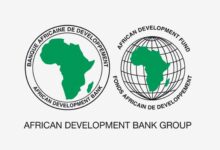Tinubu Says Bold Tax Reforms Are Paying Off as Nigeria’s Tax-to-GDP Rises to 13.5%

President Bola Tinubu has declared that his administration’s sweeping fiscal and tax reforms are beginning to yield measurable outcomes, with Nigeria’s tax-to-GDP ratio rising from 10% to over 13.5% by the end of 2024—a significant jump within just a year.
In a statement commemorating his administration’s second anniversary, President Tinubu emphasized that the reforms are not only boosting revenue but also reshaping the structure of the Nigerian economy toward fairer taxation, fiscal discipline, and inclusive growth.
“We are eliminating multiple taxation, supporting small businesses, and ensuring that low-income households retain more of their income. The reforms are structured to grow the economy, not just the government’s purse,” the president said.
Making Taxes Work for Growth, Not Just Revenue
Central to the reform agenda is a deliberate push to modernize Nigeria’s tax administration by targeting inefficiencies, leakages, and regressive waivers that have long distorted the fiscal landscape.
Key highlights of the tax reforms agenda include:
- Zero VAT on essential goods and services, including food, education, and healthcare
- Full VAT exemptions on rent, public transportation, and renewable energy
- A clampdown on arbitrary tax waivers, replaced with targeted incentives for high-impact sectors like manufacturing, technology, and agriculture
- Establishment of a Tax Ombudsman to protect vulnerable taxpayers and promote accountability
“We are laying the foundation for a new national fiscal policy that promotes fair taxation, responsible borrowing, and disciplined spending,” Tinubu said.
Backing Growth with Digital Trade and Youth-Centric Policies
The president also pointed to strategic initiatives such as the National Single Window Project, which has streamlined international trade processes, reduced port delays, and improved Nigeria’s trade competitiveness.
Further, the fiscal agenda has made deliberate provisions for youth and digital inclusion, with reforms designed to empower remote workers and gig economy players through more flexible and less burdensome tax frameworks.
“Our policies are positioning Nigerian youths for success in a digital world. Export incentives and tech-friendly tax measures will help them compete globally,” Tinubu noted.
Macroeconomic Gains: Inflation Easing, Debt Sustainability Improving
Despite earlier shocks and social pressures associated with subsidy removal and exchange rate unification, Tinubu maintained that Nigeria’s economic trajectory has turned the corner, citing improved macroeconomic indicators and revenue growth.
- Inflation is easing, and staple food prices, particularly rice, have started to decline.
- Rig counts in the oil sector are up by over 400% compared to 2021.
- New investments in oil and gas exceeded $8 billion in 2025.
- Fiscal deficit narrowed from 5.4% of GDP in 2023 to 3.0% in 2024.
- Over ₦6 trillion in revenue was recorded in Q1 2025 alone.
- Debt service-to-revenue ratio has dropped from nearly 100% in 2022 to under 40% in 2024.
- Foreign reserves grew from $4 billion in 2023 to over $23 billion by end of 2024.
- IMF obligations have been cleared, and the Ways & Means overdraft facility has been discontinued.
“The Nigerian National Petroleum Company (NNPC) is now a net contributor to the Federation Account, thanks to the removal of unsustainable fuel subsidies and the rise in local refining capacity,” he added.
Subnationals Reap the Benefits: States Post ₦6tn Revenue Gain
Another major impact of the fiscal reforms is being felt at the subnational level, where increased revenue collections—over ₦6 trillion in 2024—are enabling state governments to reduce debts, pay salaries and pensions on time, and invest in infrastructure and human capital.
The president affirmed that Nigeria was now better insulated against external shocks, with reforms ensuring the economy is on a path to sustainable growth and shared prosperity.
“We are creating a system where prosperity is shared, and no one is left behind,” Tinubu said.
BRANDECONOMY Insight
💰 President Tinubu’s fiscal reform narrative suggests more than revenue expansion—it’s a reset of Nigeria’s fiscal philosophy. While the early wins are promising, the durability of these reforms will depend on institutional buy-in, enforcement consistency, and sustained social support amid still-high living costs.
KEY METRICS
- Tax-to-GDP ratio: ↑ from 10% to 13.5% (2024)
- Q1 2025 FG revenue: ₦6 trillion+
- Foreign reserves: ↑ from $4bn (2023) to $23bn (2024)
- Debt service-to-revenue: ↓ from ~100% (2022) to <40% (2024)
- States’ revenue increase: ₦6 trillion in 2024
- New investment in oil and gas: $8 billion+
- Inflation: Trending downward
Stay tuned to BRANDECONOMY for continued coverage of Nigeria’s evolving fiscal architecture, investor sentiment, and public finance outlook.












